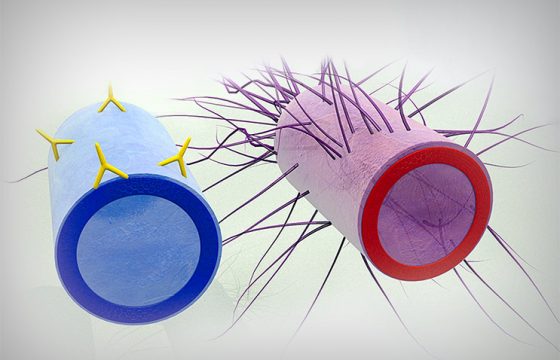What have we learned about bovine mastitis in the last 10 years?
Sofie Piepers (expert in udder health and bovine mastitis management) has been kind enough to look back over 10 years of mastitis prevention with us. Here is a small sample of her perspective during those 10 years.
Interview with Sofie Piepers, BELGIUM
Prof. Dr. Sofie Piepers is a veterinarian and researcher specialized in Udder Health who uses her expertise to coach and train vets in mastitis management.
“The main challenge in combating bovine mastitis will be to keep on stressing the importance and value of prevention”
1- What did you do 10 years ago to prevent bovine mastitis?
If I look back 10 years, then I realise that we focused primarily on how to reduce the infection pressure and exposure to bacteria and how to protect the udder as much as possible against the penetration of bacteria via, for example, the use of internal teat sealants as these were often the main challenges on the dairy farms that we visited.
I have the impression that nowadays measures such as pre-foaming, wearing gloves during milking, and the use of an internal teat sealant are more often implemented than 10 years ago.
2- What was your opinion about vaccination against bovine mastitis 10 years ago? And now?
10 years ago, I have to admit that I was rather sceptical about vaccination against mastitis, as we learned as students at university that the first line of defence against bacteria was rather non-specific, with the migration of neutrophils to the site of infection, whereas vaccines established a rather specific immunity, which is more effective against viruses.
By being involved in the scientific trials with the STARTVAC® vaccine , I became more confident in the concept of vaccination against mastitis and where and how it could fit in with mastitis management on the farm.
3- How has bovine mastitis prevention changed in the last 10 years?
Whereas 10 years ago, on 9 out of 10 herd visits that we conducted, we could achieve and maintain good udder health by implementing some straightforward measures such as those mentioned above.
Nowadays, we are more often confronted with farms that are suffering from a high incidence of clinical mastitis, although the farms are generally well managed.
It is no longer just a matter of lowering the infection pressure on the farm, but rather of finding the right equilibrium between the infection pressure and the immunity of the cows.
4- From your experience, what is the opinion of vets and farmers in the field regarding mastitis prevention and vaccination?
In most countries, the study of veterinary medicine is also more focused on diagnosing a disease or pathology and offering a solution, which can be treatment or maybe even surgery.
Also, if you treat an animal you will normally be quickly rewarded as the animal will recover and feel better and the farmer will be happy. In the case of prevention, it is possible that you will never see any result other than that there are no mastitis outbreaks.
Personally, I see a lot of opportunities for vets when it comes to mastitis management as they are the only herd health advisors who are experienced in both preventive and curative medicine, which puts them in a unique position
Farms have become more professional and understand that prevention is the key, both from an economic and a logistic point of view. Farmers nowadays also look for external advice and support more than they did 10 years ago as they understand that they cannot handle everything themselves.
Regarding vaccination against mastitis, my experience is that both vets and farmers had increasingly better adopt the concept of vaccination against mastitis. Thanks to the trials that have been performed and the professional support from inside HIPRA, they have a better understanding of what they can expect and what they can’t expect of the available vaccine
5- What are the main challenges in mastitis prevention in the future?
In my opinion, the main challenge will be to keep on stressing the importance and value of prevention. The reason that I say this is because increasingly I see farmers no longer applying certain preventive measures such as vaccination for example, or even post-milk teat disinfection, the most effective mastitis prevention measure ever, when udder health improves.
Nobody can predict whether or not a certain farm will ever struggle with, for example, Staphylococcus aureus mastitis, just as no one can predict whether their farm or house will ever be on fire. But all farmers do have fire insurance.



